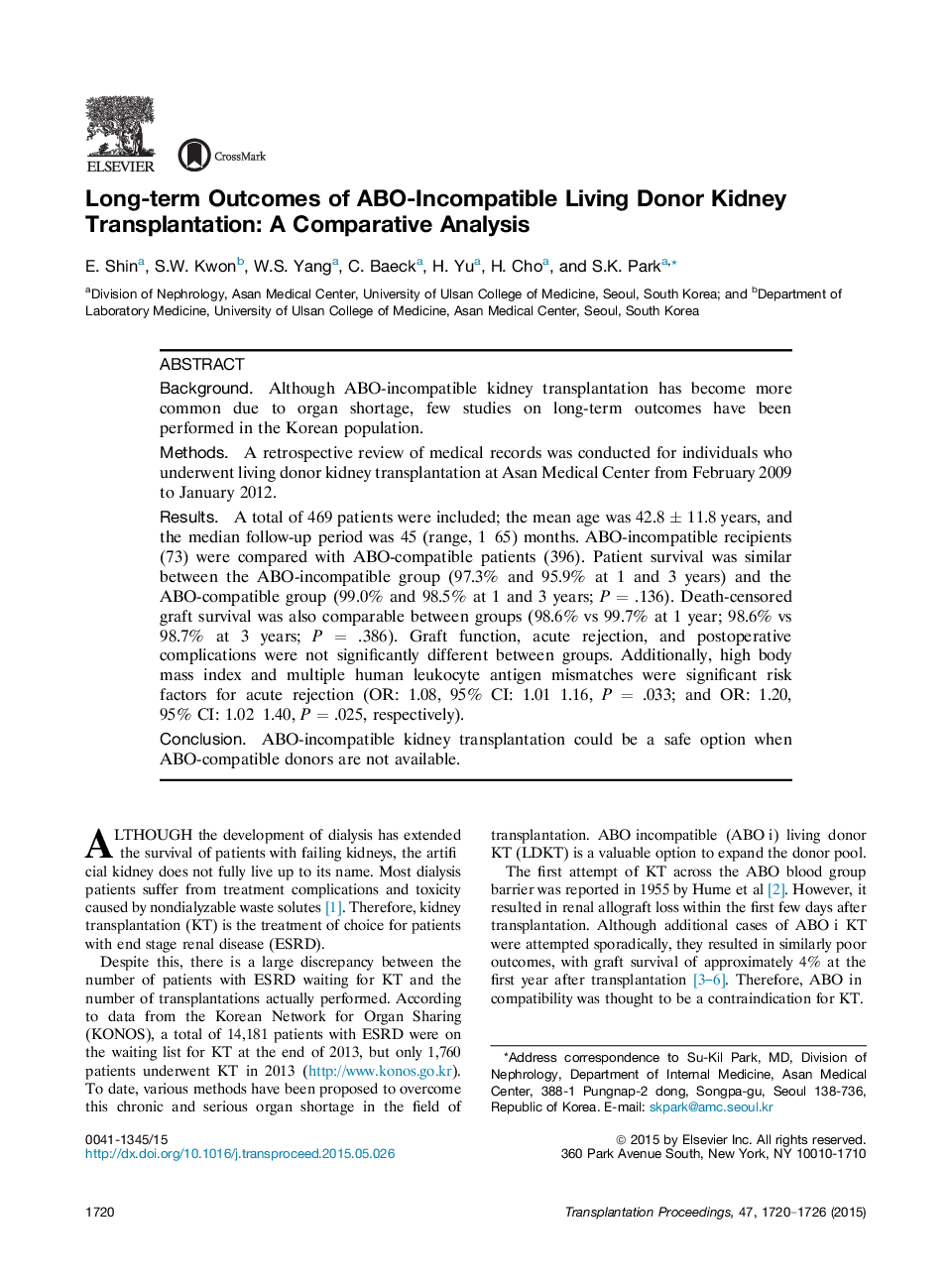| Article ID | Journal | Published Year | Pages | File Type |
|---|---|---|---|---|
| 6247152 | Transplantation Proceedings | 2015 | 7 Pages |
â¢ABO-incompatible kidney transplantation has become more common due to organ shortage in Korea.â¢Patient survival and death-censored graft survival were similar between ABO-incompatible and ABO-compatible groups.â¢Graft function, acute rejection, and postoperative complications were not significantly different between groups.â¢Additionally, high body mass index and multiple HLA mismatches were significant risk factors for the development of acute rejection.
BackgroundAlthough ABO-incompatible kidney transplantation has become more common due to organ shortage, few studies on long-term outcomes have been performed in the Korean population.MethodsA retrospective review of medical records was conducted for individuals who underwent living donor kidney transplantation at Asan Medical Center from February 2009 to January 2012.ResultsA total of 469 patients were included; the mean age was 42.8 ± 11.8 years, and the median follow-up period was 45 (range, 1-65) months. ABO-incompatible recipients (73) were compared with ABO-compatible patients (396). Patient survival was similar between the ABO-incompatible group (97.3% and 95.9% at 1 and 3 years) and the ABO-compatible group (99.0% and 98.5% at 1 and 3 years; P = .136). Death-censored graft survival was also comparable between groups (98.6% vs 99.7% at 1 year; 98.6% vs 98.7% at 3 years; P = .386). Graft function, acute rejection, and postoperative complications were not significantly different between groups. Additionally, high body mass index and multiple human leukocyte antigen mismatches were significant risk factors for acute rejection (OR: 1.08, 95% CI: 1.01-1.16, P = .033; and OR: 1.20, 95% CI: 1.02-1.40, P = .025, respectively).ConclusionABO-incompatible kidney transplantation could be a safe option when ABO-compatible donors are not available.
